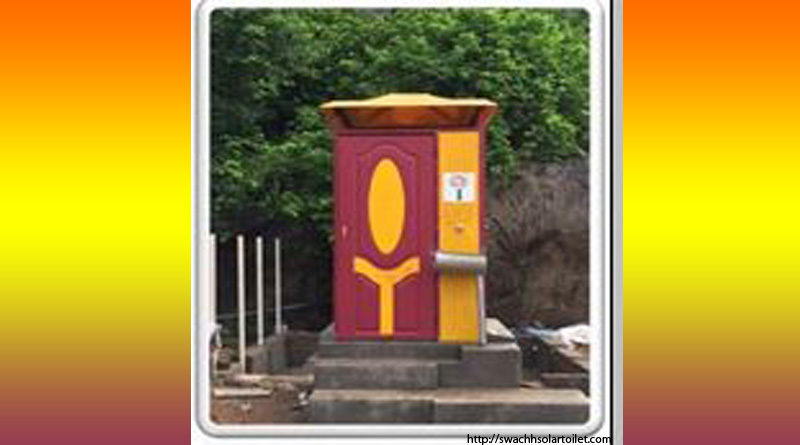

Keeping in line with India’s Swachh Bharat Abhiyan, the state of Manipur got Northeast’s very first solar toilets installed last Saturday i.e 19th May, making Manipur the third state in the country to do so after Tamil Nadu and Andhra Pradesh.
The solar toilets are installed at Ibudhou Marjing hill Heingang and were inaugurated by the Tourism Director, Waikhom Ibohal. Ibohal told the people he initially got interested in installing the technology in Manipur after he met an entrepreneur who explained the technology to him at a global summit in Guwahati.
“If it is successful, the toilets can be installed at every tourism site in Manipur in the near future”, said Ibohal.


Ravi Senji, founder of Chennai-based RaVikas Maitri, supplied the toilets to the states, said this is his first project in Manipur and plans to install a 100 such units in Manipur before 2nd October.
“We are trying to install this solar toilet at neglected places and public places. Public will feel safe with the hygienic toilet,” he said.
Unlike other e-toilets the RaVikas Maitri requires no water to flush the deficit down the drain as it uses microorganisms and worms to decompose everything. The entire process is odour free, does not pollute water or soil and is safe for humans.
The unit mimics the antics on a stomach, where heat from the sun, moisture from the washing water and air from the breathing pipes is supplied to the microorganisms in a bed an of compost material to aid them in digesting the waste, these organisms eat away all remaining organic material rendering the space odour free. This digestion process ensures an overwhelming reduction in volume, and absolute control over smell for there is nothing left to digest after a few hours.
An additional feature of these toilets is their ability to digest used sanitary napkins within their digester where the cellulosic fibres of the napkins add valuable carbon to the compost bed making it an ideal feed for the worms to digest. The process is complete when compost earthworms generate an organic fertilizer by further digesting the digested material.
The organic fertilizer is wholesome for plants and is absolutely safe to handle, as it’s been double digested by two different recyclers (worms) in a thermally controlled environment.
The entire toilet functions on solar panels installed on it, making the unit completely “off-grid”.
This initiative is truly the need of the hour in a country like India, which suffers from the lack of sanitisation facilities. One can only hope the public to embrace this technology with open arms and treat it with the same respect they treat their homes with.
1. The mandate for blending Compressed Biogas (CBG) with natural gas has come into effect…
Andhra Pradesh is striving towards greening its energy sector with quite some speed. In a…
With an objective to bolster India’s green energy goals, a Tripartite Agreement has been signed…
The Union MNRE Minister Pralhad Joshi launched the Green Hydrogen Certification Scheme of India (GHCI)…
India’s energy conglomerate Bharat Petroleum Corporation Limited (BPCL) has commissioned a 5MW green hydrogen plant…
In a historical development, the European Space Agency (ESA) has successfully launched its pioneering ‘Biomass’…